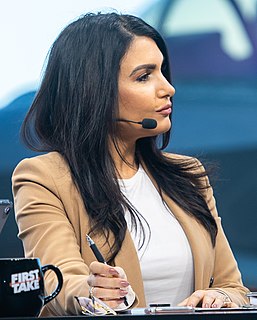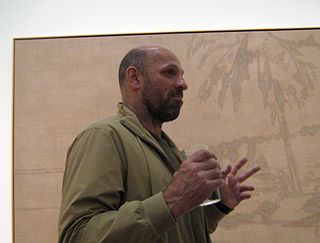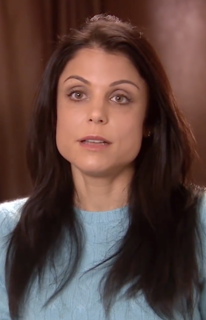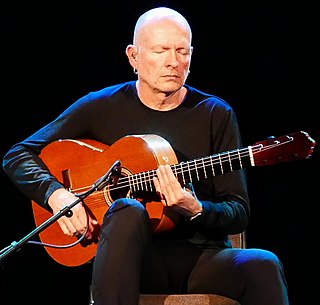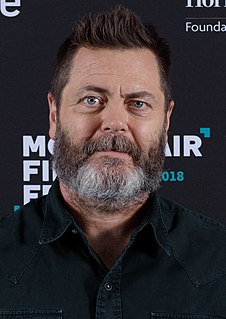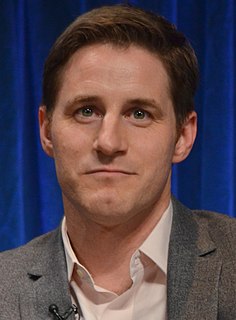A Quote by Molly Qerim
I think it is really important that I am always listening.
Related Quotes
I think live music is really, really important. And I think it's very important to do together. It's much more fun to play to music together than the one person listening to their lone iPod Shuffle. I think it's an amazing way to build community and have children do things that are funded that's not a videogame.
I am not really thinking, I am just, working with the music. And people have asked me, why don't you say more, or why do you not have singers, or why don't you sing? I think it's because, if I would have words for what I am doing, I I could write. But I really don't. It's a whole different thing. And I think it's one of the beauty of instrumental music is that it can be background. It can be what people call "easy listening." But it's really one of those things where it's as much as you are willing to give it.
So, as you can readily see from what I have said thus far, a creative, active, sensitive, accurate, empathic, nonjudgmental listening is for me terribly important in a relationship. It is important for me to provide it; it has been extremely important, especially at certain times in my life, to receive it. I feel that I have grown within myself when I have provided it; I am very sure that I have grown and been released and enhanced when I have received this kind of listening.
Because the truth is, nobody knows what's best for you better than you do. You have to really sit still and ask yourself: What do I want? Does this feel right? What should I do? I realized I had to go back and do what I had always done. Listening to my gut was just as important as listening to the advice of others, and only I knew what was best for me.
We're all born listeners. And as a result of our modern lives, and living in a world that has less meaning than the natural world that we evolved to hear, we learn to think of listening not as taking in all the information with equal value, which is the definition of true listening. In our modern world, we tend to think of listening as focusing our attention on what is important and filtering out everything else.
People's experiences are all different, and you don't know what the person experienced. They know, but you don't, so I think it's important to listen carefully to what a person has to say. And not to force them into any direction at all but simply to model what you've experienced, model it and also be what I call a Listening Presence. If you're really listening, then some of the barriers can dissolve or change.
It's irrelevant to me if other people know who I am. I'm just, I'm really happy. It calms me down, too. If you're on top of an oilrig, fighting with politicians, or whatever - you need a bit of wisdom to realize that you're not always right, or that you're not always being reasonable, or you're not always listening.
I think it's really, really important to grow the consensus and to realize that there is always some value that can be shared with another American, on any issue. Starting from those points of common belief and shared values is very, I think, important to forging the consensus that allows these issues to more forward.
